Best known for providing expert advice on machine learning and artificial intelligence (AI) to Pope Francis, Fr. Paolo Benanti has a contagious enthusiasm for the ethics of technological advancement.
Benanti, a Third Order Regular of Saint Francis and lecturer at the Pontifical Gregorian University in Rome, visited the University of Notre Dame in February to share his expertise in guiding data scientists and researchers to advance humanity-centered technology.
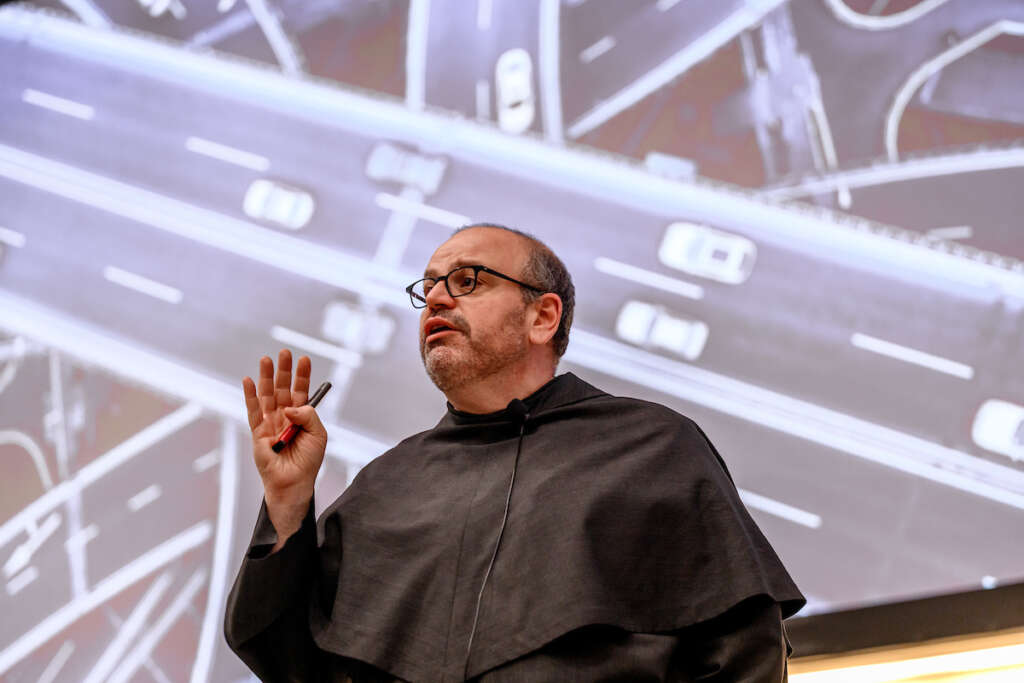
To a room filled with Notre Dame students, faculty, and staff, Benanti explained that “The goal of ethics of technology is to offer to different stakeholders the opportunity to have an active decision-making system on innovation.” This system, he said, is critical for advancements in AI to produce results that work toward the greater good of society.
Benanti presented a seminar titled “Algorethics: potentiality and challenges in the age of AI” as part of the Lucy Family Institute for Data & Society’s ongoing Soc(AI)ety Seminars series. The Soc(AI)ety Seminars series serves as a collection of talks dedicated to inspiring dialogue on ethical and socially responsible data and AI. For its inaugural theme, “Responsible AI and AI Governance,” the series invited internationally recognized experts to deliver presentations focused on the societal implications of AI if systems are developed without prioritizing ethical considerations.
Drawing upon historical instances in which technology delivered far-reaching and often unexpected societal outcomes when unregulated, Benanti reinforced the need for guardrails to protect society from disinformation that may put democracy at risk. He further emphasized that a balance can be achieved, where human language is advanced and transformed through machine-learning relationships.
Benanti also met with leaders from across campus, including Notre Dame President-Elect Rev. Robert A. Dowd, C.S.C., and Jeffrey F. Rhoads, vice president for research and professor in the Department of Aerospace and Mechanical Engineering to discuss the University’s alignment with advancing data and computational science programs for the benefit of a world in need.
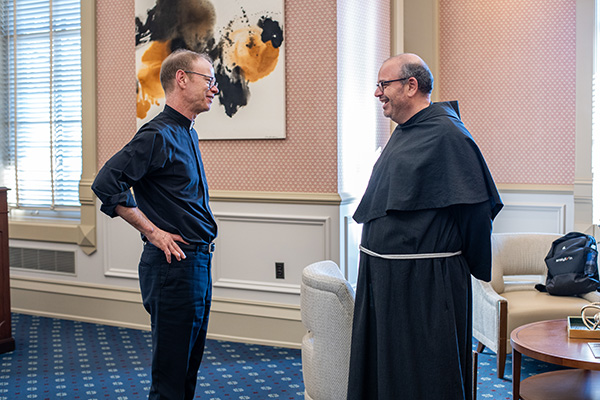
(Photo by Angie Hubert/University of Notre Dame)
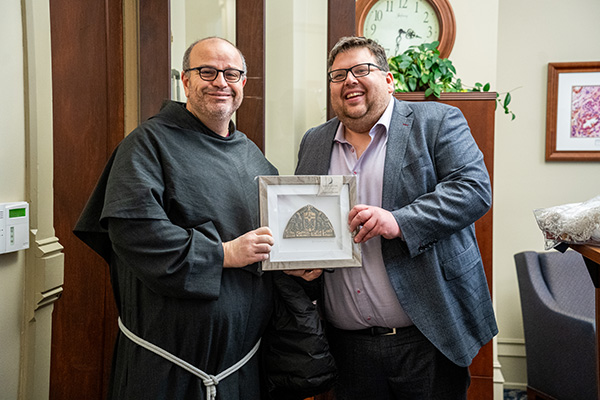
(Photo by Angie Hubert/University of Notre Dame)
Nitesh Chawla, founding director of the Lucy Family Institute for Data & Society and Frank M. Freimann Professor of Computer Science and Engineering, hosted Benanti’s visit. “I am inspired by Father Benanti’s vision of a world in which humans are guiding responsible AI to benefit humanity,” he says. “In the modern world where there is much anticipation around the future of artificial intelligence platforms, his discussions with Notre Dame faculty, staff, and students fully optimize the integration of faith, ethics, and technology to guide the next generation towards a future where technology can enhance our shared human experience.”
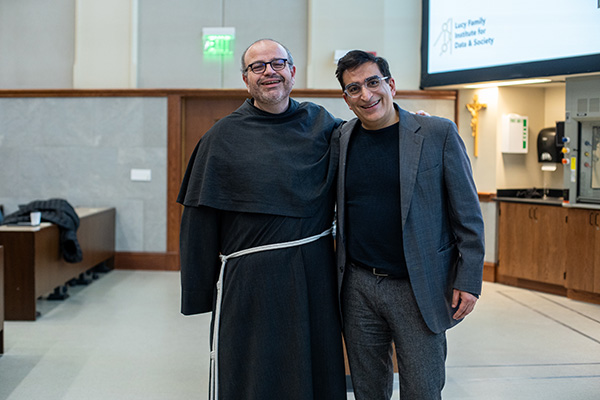
(Photo by Angie Hubert/University of Notre Dame)
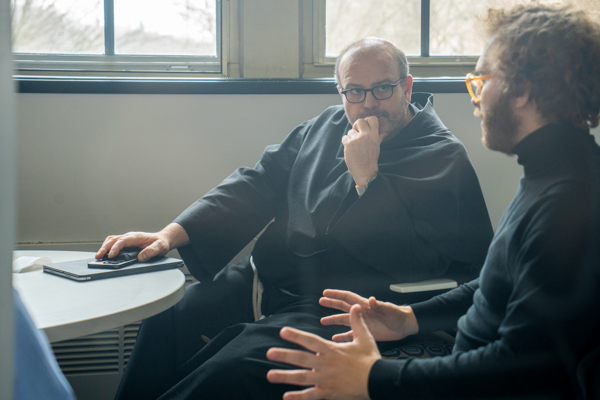
(Photo by Angie Hubert/University of Notre Dame)
Benanti’s visit to Notre Dame follows the University’s announcement to join the international AI Alliance as a founding partner. The partnership aims to enhance the benefits of AI through open innovation and global collaboration that supports trustworthy, and secure AI systems. In early 2024, Notre Dame also joined the Artificial Intelligence Safety Institute Consortium (AISIC) as part of the National Institute of Standards and Technology to establish advanced techniques to identify the risks associated with current AI systems, and to develop new trustworthy systems.
For more information on artificial intelligence projects and events within the Lucy Family Institute, please visit the website.
Contact:
Christine Grashorn, Communications Specialist
Notre Dame Research / University of Notre Dame
cgrashor@nd.edu / 574.631.4856
research.nd.edu / @UNDResearch
About the Lucy Family Institute for Data & Society
Guided by Notre Dame’s Mission, the Lucy Family Institute adventurously collaborates on advancing data-driven convergence research, translational solutions, and education to ethically address society’s wicked problems. As an innovative nexus of academia, industry, and the public, the Institute also fosters data science access to strengthen diverse and inclusive capacity building within communities. Our vision is to become the preeminent intellectual beacon, inspiring collaborative, equitable, and impactful data innovations as a global force for good.